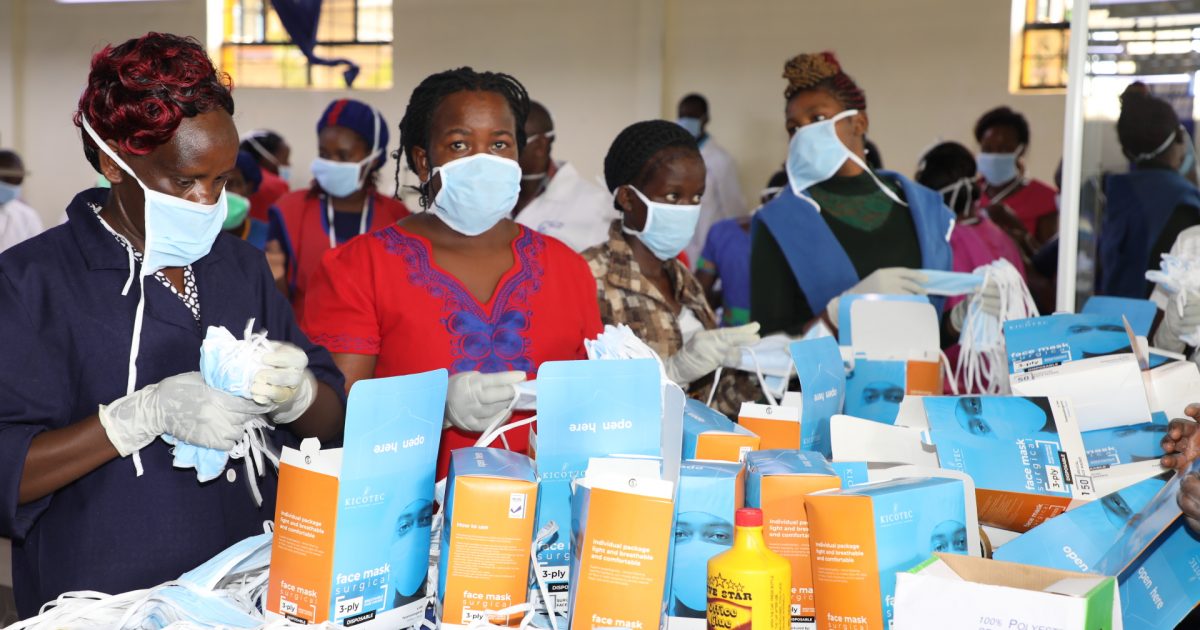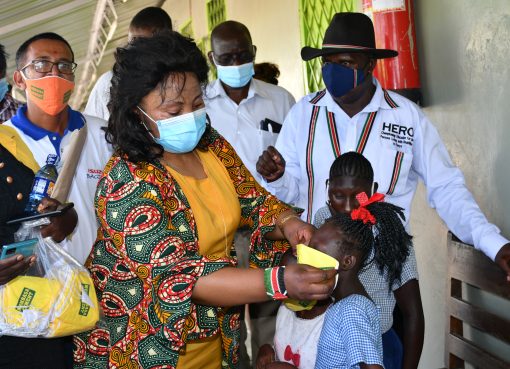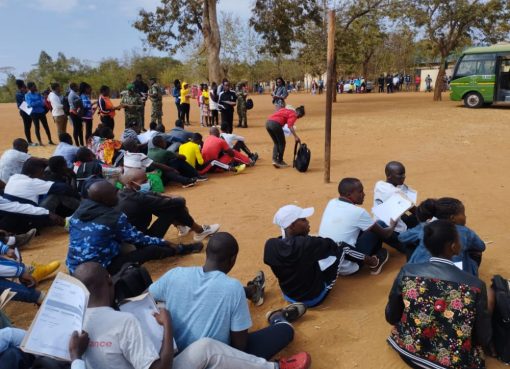Cotton farmers in Kitui County are set to reap a bumper harvest due to the soaring demand of facemasks as the world battles the ravages of coronavirus.
As the demand for more cotton increases, Kitui County Textile Centre has been transformed instantly into making 30,000 masks a day, whereas previously the firm produced almost none.
“The domestic production of COVID-19 personal protective equipment (PPE) should be encouraged and supported,” said the Kitui Governor, Charity Ngilu on Friday in Kitui.
The county government is considering building two more factories from funds earned from selling the masks, as well as training other counties on how to make their equipment rather than relying on imports, Ngilu added.
Governor Ngilu disclosed that increased cotton production means ginners and farmers will flatten the demand curve in the next five months when the crop is harvested,” said Governor Ngilu.
“Kenya imports 80 percent of the cotton it processes from neighbouring countries, like Uganda. Cotton is one of the crops with a very elaborate value chain, benefiting many players such as farmers, ginneries and the consumer,” said Anthony Muriithi, the Director-General of the Agriculture and Food Authority.
Early this year, the government identified 1,000 farmers across the country, who received 16 metric tons of hybrid seeds, the country’s first genetically modified (GM) cotton seeds during the April/May planting season.
“The cotton seeds, which have been improved with a Bt gene to provide inherent resistance to the devastating African bollworm pest, aims to showcase the technology and its stewardship practices,’’ said Rajeev Arora, chairperson of the Bt Cotton Task Force.
Cotton farming is part of President Uhuru Kenyatta’s Big-4 agenda, with the government committed to supporting farmers with inputs, access and development of improved seed, price supports, construction of seed cotton buying centers, the establishment of modern ginneries and commercialization of Bt cotton.
The first GM seeds were distributed to the counties of Busia, Bungoma, Siaya, Kisumu, Homabay, Baringo, Marakwet, Kilifi, Kwale, Tana River and Lamu, according to the Ministry of Agriculture, Livestock, Fisheries and Cooperatives.
Similarly, Kitui County Ministry of Agriculture, Water and Livestock Development received a total of 9, 000 100-ml bottles of cotton pesticides from the Agriculture and Food Authority.
The pesticide known as Thunder Broad spectrum, benefitted more than 4, 000 farmers who were issued with cotton seeds.
Mwingi North Sub County has the largest number of cotton farmers in the county with a total coverage of 3, 000 acres followed by Kitui East with 1, 000 acres.
The County Government has encouraged farmers to engage in cotton farming as an economic activity alongside other farming practices.
The Kitui Ginneries Operations Manager, Mary Mwinzi revealed that cotton is one of the bestselling cash crops in the country and said cotton was also drought resilient, unlike maize and beans and can generate income amongst farmers in the arid county.
“I urge Kitui farmers to shift to cotton farming because there is a ready market for the produce,” affirmed Mrs. Mwinzi, adding that there was high demand for it, both locally and globally.
“Farmers should also take advantage of free distribution of seeds by the government, to embark on bulk production of cotton to boost their income,” she appealed.
Mrs. Mwinzi noted that cotton has a wide range of products, including lint, biodiesel, washing detergent and animal feed, among others.
By Yobesh Onwong’a




